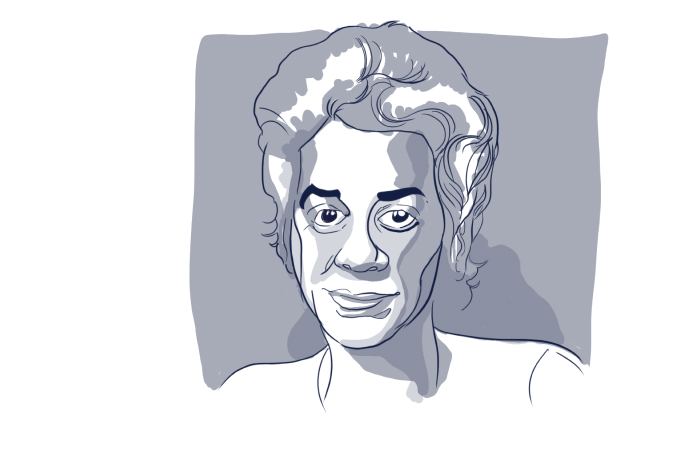Let me say at the outset that I am no fan of Russian President Vladimir Putin. I believe what he is doing in Ukraine is a war crime. There is no justification for the killing of thousands of civilians, the displacement of millions of men, women and children, and the destruction of entire cities. Putin is determined to single-handedly destroy an entire nation, and no sane person can condone what he is doing.
However, I do believe that the West’s attitude towards the war in Ukraine is nothing less than hypocritical because Western nations and their allies have been waging wars in other countries without suffering any sanctions or condemnation. Where was the outrage when NATO attacked Libya in a bid to oust Muammar Gaddafi, when United States-backed Saudi Arabia bombed Yemen, or when the US and Britain invaded Iraq? Who – except Palestinians – sheds tears when a Palestinian kid is killed by Israeli soldiers?
The case of Iraq is particularly illustrative of how Western nations can wage a war on non-Western nations without suffering any consequences. In March 2003, the United States and Britain invaded Iraq—without unanimous United Nations Security Council approval—on the pretext that Saddam Hussein possessed “weapons of mass destruction” and had links to the terrorist organisation Al Qaeda. (Both claims were found to be untrue.)
Despite widespread anti-war protests in every continent around the globe, the George W. Bush and Tony Blair administrations did not listen to the voices of the millions of people who were opposed to the war, even as the death toll in Iraq reached alarming proportions. The war in Iraq led to the death of hundreds of thousands of civilians, but this fact did not prompt the UN Security Council to refer the then US President and the then British Prime Minister to the International Criminal Court at The Hague. The blasé attitude of the US and British governments—and indeed of the international media—towards the slaughter and anarchy taking place in Iraq clearly suggested that there was a “moral hierarchy among victims of the world’s horrors.” The Western world is now appalled at what is happening in Ukraine because the war is too close to home and is affecting Europeans.
Although the then UN Secretary-General Kofi Annan had publicly expressed his disappointment about the decision by the US and Britain to invade Iraq, and had even declared that the war was “illegal”—as it had not been sanctioned by the UN Security Council and violated the UN Charter—there was not much he could do.
As with Ukraine, the UN Security Council—the body entrusted by the world’s governments to prevent wars from occurring or escalating—could also do absolutely nothing to prevent the invasion of Iraq; it could not even impose sanctions on the United States and Britain, which, as veto-holding members of the UN Security Council, had imposed UN sanctions on Iraq after Saddam Hussein invaded Kuwait in 1990.
The UN Security Council has been unable to prevent wars in places such as Iraq and Ukraine because the five veto-holding permanent members, also known as the P-5 (United States, Britain, France, Russia and China), are not held to account when they themselves become aggressors. This is why Russia – a veto-holding permanent member of the Council – did not suffer any UN sanctions when it carried out military actions in Chechnya in 1999, in Georgia in 2008, in Crimea (which it annexed in 2014) and in Ukraine in 2022.
There have been countless op-eds blaming certain UN member-states for not strongly condemning Russia’s actions in Ukraine. As during the Cold War, new alliances are forming, with major regional powers such as China and India deciding not to take sides. The Russia-China-India nexus reflects superpower ambitions aimed at destablising Western powers.
African countries such as South Africa, Zimbabwe and Mozambique have also decided not to go too hard on Putin, partly because these countries have historical ties with Russia, beginning with the latter’s support for their liberation wars during the Cold War era. There is also the fact that many African countries rely on Russia for food. African countries imported agricultural products worth $4 billion from Russia in 2020. Cape Verde, Togo, Namibia, Burundi, Madagascar, Rwanda and Benin are among African countries that import almost all their wheat from Russia.
Let us also not forget that Russia is also the biggest supplier of arms to Africa, followed by France, the US and China. Angola, Nigeria, Sudan, Ethiopia, Rwanda and Mali are among the biggest importers of Russian military equipment. African countries’ reliance on Russian weapons and military hardware could be a reason why so many African countries do not want to take a position on Putin’s war.
Putin’s ambitions for a Greater Russia are already having an inflationary effect in Africa and around the world. This war is not just about human lives and the sovereignty of a nation; it is also about how globalisation has made it easier for a tyrant to trigger worldwide economic disruption. Western nations may be united against Russia, but this war has shown that the world has become as polarised as it was during the Cold War. The balance of power is steadily shifting Eastward.

